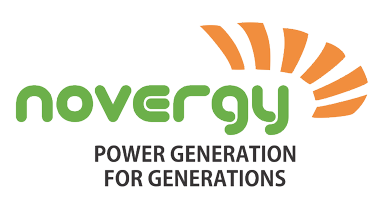Introduction
In a significant move to promote renewable energy development, the Gujarat government has introduced new guidelines for solar and wind power projects up to 5 MW and 10 MW, respectively. These guidelines notably waive the domestic content requirement (DCR) mandate for solar modules, offering greater flexibility to developers in sourcing components.
Key Policy Highlights
- Waiver of Domestic Content Requirement: This is a major step towards simplifying the procurement process for solar project developers. By eliminating the requirement to source solar modules exclusively from domestic manufacturers, developers gain access to a wider range of suppliers and potentially more competitive pricing.
- Eligibility Criteria: The guidelines cover a range of project sizes which includes solar projects between 500 kW and 5 MW and wind projects between 500 kW and less than 10 MW.
- Simplified Application Process: The introduction of the Akshay Urja Setu portal streamlines the application process, making it easier and faster for developers to obtain necessary approvals.
- Competitive Tariffs: The guidelines set competitive tariffs for both solar and wind projects to make renewable energy an even more attractive option for businesses and consumers in Gujarat.
- Focus on Quality: To ensure the long-term viability and reliability of projects, the guidelines emphasize the use of high-quality equipment by mandating the use of modules and turbines approved under the ALMM (Approved List of Models and Manufacturers) and RLMM lists.
Impact on Renewable Energy Growth
By removing the domestic content requirement, the Gujarat government has taken a significant step towards creating a more conducive environment for renewable energy development.
This policy change is expected to:
- Reduce Project Costs: By allowing developers to source solar modules from a wider range of suppliers, including international manufacturers, project costs are likely to decrease.
- Accelerate Project Development: Streamlined procurement and approval processes will enable developers to bring projects online more quickly.
- Increase Investment: The reduced costs and simplified procedures are expected to attract greater investment in the renewable energy sector in Gujarat.
- Promote Competition: The increased competition among suppliers is likely to lead to better pricing and improved product quality.
FAQs
-
What is the domestic content requirement (DCR)?
- The DCR mandates that a certain percentage of the components used in a renewable energy project must be sourced from domestic manufacturers.
-
How will the waiver of the DCR benefit developers?
- By allowing developers to source components from a wider range of suppliers, including international manufacturers, the waiver will help reduce project costs and accelerate project timelines.
-
What are the key benefits of investing in renewable energy in Gujarat?
- Investing in renewable energy in Gujarat offers numerous benefits, including reduced reliance on fossil fuels, lower energy costs, and environmental sustainability.
How Novergy Can Help
Navigating the complexities of setting up a renewable energy project can be challenging. Novergy can assist you at every stage of the process:
- Understanding the New Guidelines: Our team of experts can help you understand the implications of these new guidelines for your specific project.
- Project Feasibility Assessment: We can assist you in identifying suitable locations and assessing the feasibility of your renewable energy project.
- Technology Selection: We can help you select the most appropriate technology and equipment for your needs, including solar modules, inverters, and other critical components.
- Application and Approval Process: We can guide you through the application and approval process, ensuring compliance with all relevant regulations and standards.
Contact Novergy Today!
solar@novergy.net / +91-9116968967
Conclusion
The Gujarat government’s decision to waive the domestic content requirement for solar projects up to 5 MW marks a significant step forward in the state’s renewable energy journey. By creating a more conducive environment for investment and development, this policy change is poised to drive significant growth in the solar energy sector in Gujarat.

